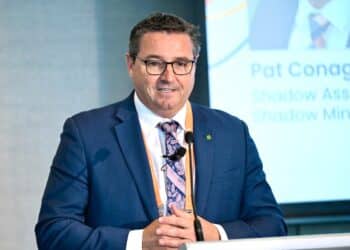Research from the University of South Australia has revealed that over 80 per cent of lower income consumers who have never accessed financial advice believe there is no value in doing so, with current costs of advice said to be more than double what most people from this group are prepared to pay.
“Our study suggests that current costs of financial planning lock many people from lower socio-economic groups out of receiving advice, which reduces their financial wellbeing, places a greater burden on pension support, and may contribute to financial inequality in society,” said professor of finance, Chandra Krishnamurti.
In addition to ranking the value of advice, the survey also sought to determine the dollar amount that consumers were willing to pay for financial planning advice. Namely what emerged is that over 95 per cent of consumers believe a value range of $0–$999 is reasonable.
Among already advised clients, a range of $0–$999 was cited as reasonable for initial development and implementation of a financial plan by over 70 per cent of consumers. This, however, is in stark contrast to actual fees, with 88 per cent of advisers indicating they charge fees of $2,000 or more for initial advice.
The study – funded by Magellan Asset Management, Centrepoint Alliance, the Financial Planning Association of Australia and the Financial Planning Education Council – suggested targeted policy support for financial planning could deliver significant benefits to lower income groups and improve efficiency in the financial advice industry.
“Our research indicates three clear avenues for improving uptake of financial advice among lower socio-economic groups,” professor Krishnamurti said.
“These are: increasing awareness of the benefits, government rebates on advice fees, and a streamlined advice format for these groups.”
His research partner, lecturer in financial planning and director of GAP Financial, Geoff Pacecca, explained that the first of these mechanisms requires shifting the perception that financial planning is just about helping rich people with ‘wealth management’.
Regarding the proposed introduction of a government rebate for initial advice fees for low-income earners of retirement age, professor Krishnamurti said that if this rebate is targeted at consumers who are seeking retirement planning and superannuation advice, “it could greatly improve the financial security of this group and reduce pressure on the age pension system”.
In addition to reducing costs for consumers, the report suggested that it would also be possible to reduce costs for advisers by developing a streamlined advice format tailored to delivering retirement and superannuation advice for low-income earners.
“It would be possible to reduce compliance time – and thus cost – for financial advice providers by establishing a short-form statement of advice format for retirement-age people from lower income groups who are seeking retirement planning advice,” Mr Pacecca said.
“Many people from this group have relatively low levels of complexity in their financial advice needs, so a short-form approach would help reduce costs while still delivering valuable advice.”
The report was based on 75 responses from the financial advisors and 160 responses from the consumers aged over 50.




Let me understand this. It took 5 academics, 1000’s of hours, over two years to come to the conclusion that consumers would prefer things to cost less??
ask your consumers want to pay their doctors or specialist i bet its less than they are charging…. these uni people are on a good gig getting government grants to do studies on common sense things…..
Not one dollar from any government organisation. Developed from over 1000 hours of work from a team of 5 academics over two years and for no extra pay or allocation to our work hours and the generosity of our research partners who came on the journey with us. Geoff Pacecca (research lead).
Geoff, in your research did you ask whether the clients supported a significant reduction in paperwork, duplicated requirements, reduction in compliance requirements for advisers, reduction in red tape, reduction in size of SOA, reduction is size and number of alternative considerations etc. to arrive at the cost of what they thought advice should be?
Without this, I think the expectation that advice costs would come down is unrealistic.
It’s Not just lower socio economic people priced out of advice with stupid BS red tape rubbish compliance.
It’s also the massive amount of wasted red tape time and cost to existing clients from this most moronic Gordian Knot of BS compliance.
FIX / CUT THE WHOLE KNOT, not just focus on low income problems.